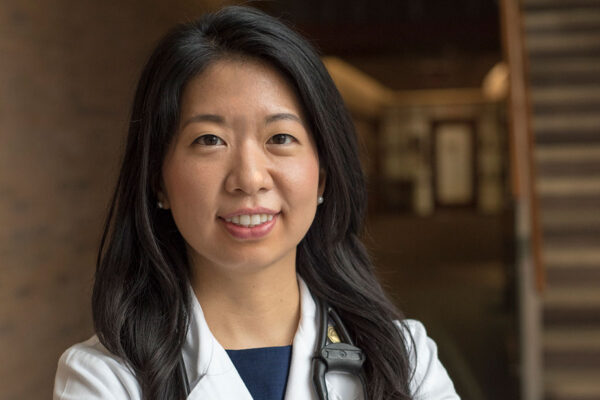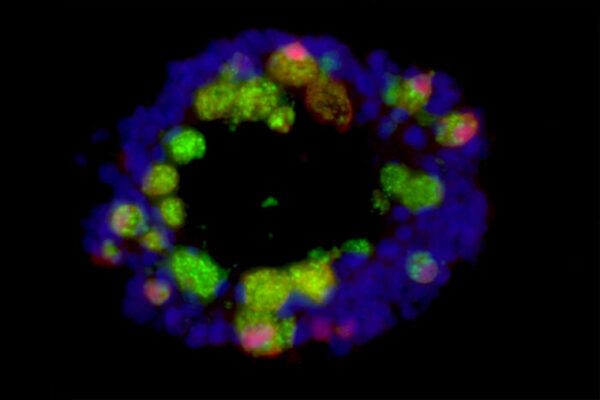Kwon named committee vice chair by epidemiology society
Jennie H. Kwon, DO, assistant professor of medicine at Washington University School of Medicine, has been named the vice chair for the Society for Healthcare Epidemiology of America Research Committee.
Western diet may increase risk of gut inflammation, infection
Eating a Western diet impairs the gut’s immune system in ways that could increase risk of infection and inflammatory bowel disease, according to a study from the Washington University School of Medicine and Cleveland Clinic.
Researchers win NIH grant
Linda J. Pike and Alexander S. Holehouse, in the Department of Biochemistry and Molecular Biophysics at the School of Medicine, and Gary J. Patti, in Arts & Sciences and the School of Medicine, received a four-year grant totaling $1.45 million from the National Institute of General Medical Sciences of the National Institutes of Health (NIH).
Finding alternatives to traditional antibiotics aim of $11 million grant
Researchers at the School of Medicine have received an $11 million grant from the National Institutes of Health (NIH) to find new ways to combat the growing threat of antibiotic resistance.
Darcy receives Gold Medal from interventional radiology society
Michael D. Darcy, MD, professor of radiology and associate professor of surgery at Washington University School of Medicine in St. Louis, has been awarded a Gold Medal from the Society of Interventional Radiology.
Michael E. Hughes, assistant professor of pulmonary medicine, 41
Michael Evan Hughes, a neuroscientist and chronobiologist highly respected for his research at the School of Medicine, died May 4 at his home in St. Louis after a six-year battle with brain cancer. He was 41. A public celebration of life will be held Saturday, May 8, in Olivette, Mo.
Hammond receives Merck research fellowship
J. Gmerice Hammond, MD, a cardiologist and health policy research fellow in the Cardiovascular Division at Washington University School of Medicine, has received a Merck Fellowship Research Award from the Association of Black Cardiologists and the American College of Cardiology.
Elson elected to National Academy of Sciences
Elliot Elson, of Washington University School of Medicine, has been elected to the National Academy of Sciences. Election to the academy is considered one of the highest honors that can be awarded to a U.S. scientist or engineer.
Researchers to study impact of IBD meds on COVID vaccine
The School of Medicine received a $1.3 million grant from The Leona M. and Harry B. Helmsley Charitable Trust to support the work of Parakkal Deepak, MBBS, and Alfred H.J. Kim, MD, PhD. They will study antibody responses after vaccination against SARS-CoV-2 in patients with inflammatory bowel disease and other autoimmune diseases.
Anti-aging compound that improves metabolic health in mice improves muscle glucose metabolism in people
In the first clinical trial of nicotinamide mononucleotide (NMN), School of Medicine researchers have found that the compound previously demonstrated to counteract aspects of aging and improve metabolic health in mice also has clinically relevant effects in people.
Older Stories






